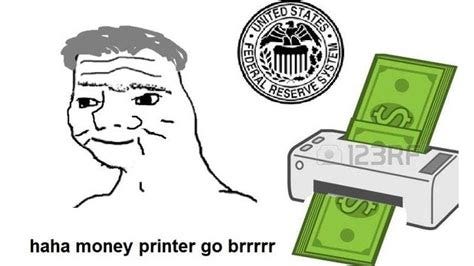What is Money?
Money is a medium of exchange that is widely accepted in payment for goods and services. It can take the form of physical currency, such as coins and paper bills, or digital forms, such as electronic transfers and cryptocurrency. The value of money is usually determined by a government or central authority, and it is used as a store of value and a unit of account. Money is used to facilitate transactions and to simplify the exchange of goods and services.
The Best Form of Money
The best form of money is a matter of debate and can depend on the context and the specific needs of the individual or society. Some argue that physical currency, such as gold and silver, is the best form of money because it has intrinsic value and is not subject to the fluctuations and instability of government-issued currency. Others argue that digital forms of money, such as electronic transfers and cryptocurrency, are the best form of money because they are more efficient, secure, and accessible.
In general, the best form of money is one that is widely accepted, stable in value, easy to use and transport, and difficult to counterfeit. It is also important that it is easy to access and the transactions are easy to track and record.
It is worth noting that different forms of money have their own advantages and disadvantages and it can be useful to have a mix of forms of money. For example, physical money is useful for small transactions, digital money for larger transactions and for online payments.
Pro’s of Fiat Currency
Fiat currency is currency that is issued by a government and is not backed by a physical commodity such as gold or silver. Some of the drawbacks of fiat currency include:
Inflation: Fiat currency is subject to inflation, which means that the purchasing power of the currency can decrease over time. This can make it more difficult for individuals and businesses to plan for the future and can lead to a decrease in the standard of living.
Devaluation: The value of fiat currency can also decrease relative to other currencies, which can make exports more expensive and imports cheaper. This can lead to trade imbalances and can negatively impact the economy.
Government manipulation: Governments can manipulate the supply of fiat currency, which can lead to inflation, devaluation, and other economic problems. Governments can also use monetary policy to achieve political or economic goals, which can be detrimental to the overall economy.
Vulnerability to fraud: Physical fiat currency is vulnerable to counterfeiting and digital fiat currency is vulnerable to hacking and fraud.
Limited physical presence: Physical fiat currency is limited in the sense that it can be physically exchanged only in the country where it is issued and it can be difficult to transfer it to another country.
It is worth noting that some of these drawbacks can be mitigated with good monetary policies and regulations. Additionally, the use of digital fiat currency in addition to physical currency can help reduce fraud and make transactions more efficient.
Con’s of Fiat Currency
Some of the benefits of fiat currency include:
Flexibility: Fiat currency is not tied to the value of a physical commodity, which allows governments to adjust the money supply in response to changes in the economy. This can help promote economic stability and growth.
Economic stability: Fiat currency provides a stable medium of exchange that allows individuals and businesses to plan for the future and make transactions with confidence.
Liquidity: Fiat currency is widely accepted and easily exchangeable for goods and services, which can increase the liquidity of the economy.
Facilitation of trade: Fiat currency can facilitate trade by providing a common medium of exchange that can be used across borders.
Convenience: Physical fiat currency is easy to carry and use for small transactions and digital fiat currency is easy to use and accessible via internet.
Ease of record keeping: Transactions made in fiat currency can be easily recorded and tracked, which can help to prevent fraud and financial crimes.
Benefits and Limitations of Gold-Backed Currency
A gold-backed currency is a type of currency that is backed by a certain amount of gold held in reserve by the issuing government or central bank. Some of the benefits of a gold-backed currency include:
Stability: Gold has been a store of value for thousands of years and its value is relatively stable over time. This can provide a sense of security and stability for individuals and businesses that use a gold-backed currency.
Inflation protection: Because the value of gold tends to hold up over time, a gold-backed currency can help protect against inflation. This can make it easier for individuals and businesses to plan for the future and maintain their standard of living.
Limited government manipulation: A gold-backed currency is not subject to the same level of government manipulation as fiat currency, which can make it less vulnerable to inflation and devaluation.
International acceptance: Gold has a long history of being widely accepted as a store of value and as a medium of exchange, which can make it easier to use a gold-backed currency in international trade.
Some of the limitations of a gold-backed currency include:
Limited flexibility: Because a gold-backed currency is tied to the value of gold, the money supply is limited by the amount of gold held in reserve. This can make it difficult for governments to respond to changes in the economy.
Limited accessibility: Not everyone has access to gold and gold can be difficult to transfer or use for small transactions.
Volatility: The price of gold can be volatile and can fluctuate depending on market conditions and other factors.
Physical storage and security: Large amounts of gold require physical storage, which can be costly and difficult to secure.
Limited divisibility: Gold is not easily divisible and this can make it difficult to use for small transactions.
It is worth noting that a gold standard, where a currency is directly convertible to gold, is quite different from a gold-backed currency, where only a fraction of the currency is backed by gold. The gold standard is no longer used in most countries, because it has limitations that make it inflexible in responding to economic changes and can create instability.
Is Bitcoin the Answer?
Bitcoin is a decentralized digital currency that is based on blockchain technology. It has a number of features that make it different from traditional fiat currencies and other forms of money. While some people believe that Bitcoin has the potential to become a global reserve currency, it also has several limitations that would make it difficult for it to achieve this status.
Some of the benefits that could make Bitcoin a viable reserve currency include:
Decentralization: Bitcoin is not controlled by any government or central authority, which can provide a level of security and stability.
Transparency: Transactions on the Bitcoin network are recorded on a public blockchain, which can increase transparency and reduce the risk of fraud.
Global acceptance: Bitcoin can be used for transactions anywhere in the world, which could make it a more viable option for global trade.
Limited supply: The total supply of Bitcoin is limited to 21 million, which can help prevent inflation.
However, there are also several limitations that would make it difficult for Bitcoin to become a global reserve currency:
Volatility: The value of Bitcoin can be highly volatile and can fluctuate significantly in a short period of time, which can make it difficult for individuals and businesses to plan for the future.
Lack of regulation: Bitcoin is not currently regulated by any government or central authority, which can make it difficult for governments and financial institutions to monitor and control its use. Actually, this is a feature and not a bug.
Security concerns: Bitcoin is vulnerable to hacking and other forms of cybercrime, which can make it difficult for individuals and businesses to trust and use it as a store of value. A proper security setup can mitigate a lot of this risk as I noted here:
Limited acceptance: Bitcoin is not yet widely accepted as a form of payment, which can make it difficult for it to achieve the level of global acceptance required to become a reserve currency. Lightning Network is changing this, as noted in my last post:
Complexity: Bitcoin is a relatively new and complex technology that not everyone is familiar with, which can make it difficult for some people to use and understand.
On balance, I would have to say Bitcoin has a lot of potential as a new form of money and savings technology and for many people in the world, especially those living in countries with authoritarian regimes and high rates of inflation, Bitcoin is Hope.
Not financial or legal advice, for entertainment only, do your own homework. I hope you find this post useful as you chart your personal financial course and Build a Bitcoin Fortress in 2023. To see all my books on investing and leadership, click here.
Always remember: freedom, health and positivity!
Please also check out my Building a Financial Fortress Podcast on YouTube here and on all your favorite streaming platforms. I do a weekly Bitcoin news update every week on current items of interest to the Bitcoin community, usually 30 to 60 minutes depending on the number of topics to cover. Please check it out if you haven’t already.










